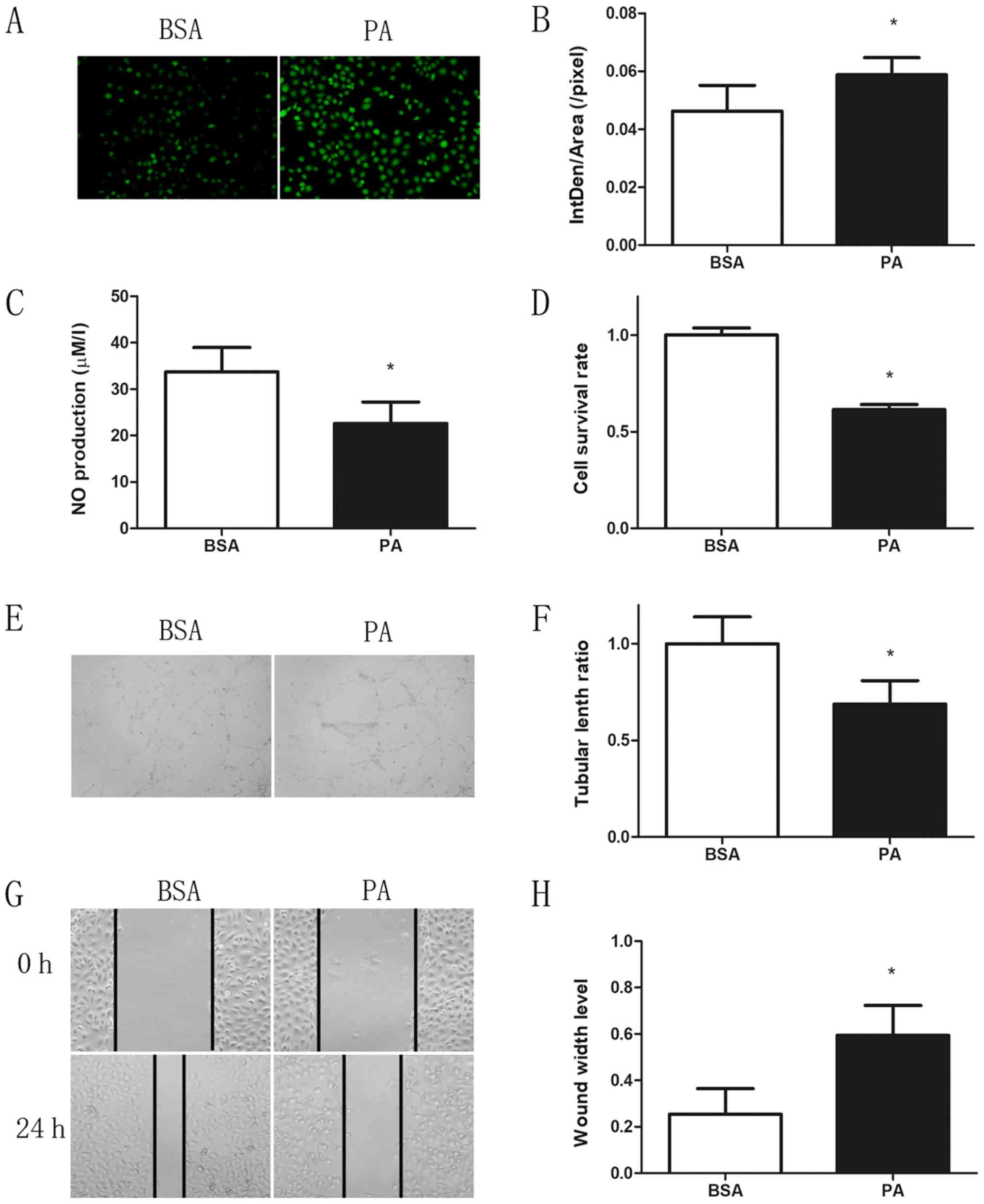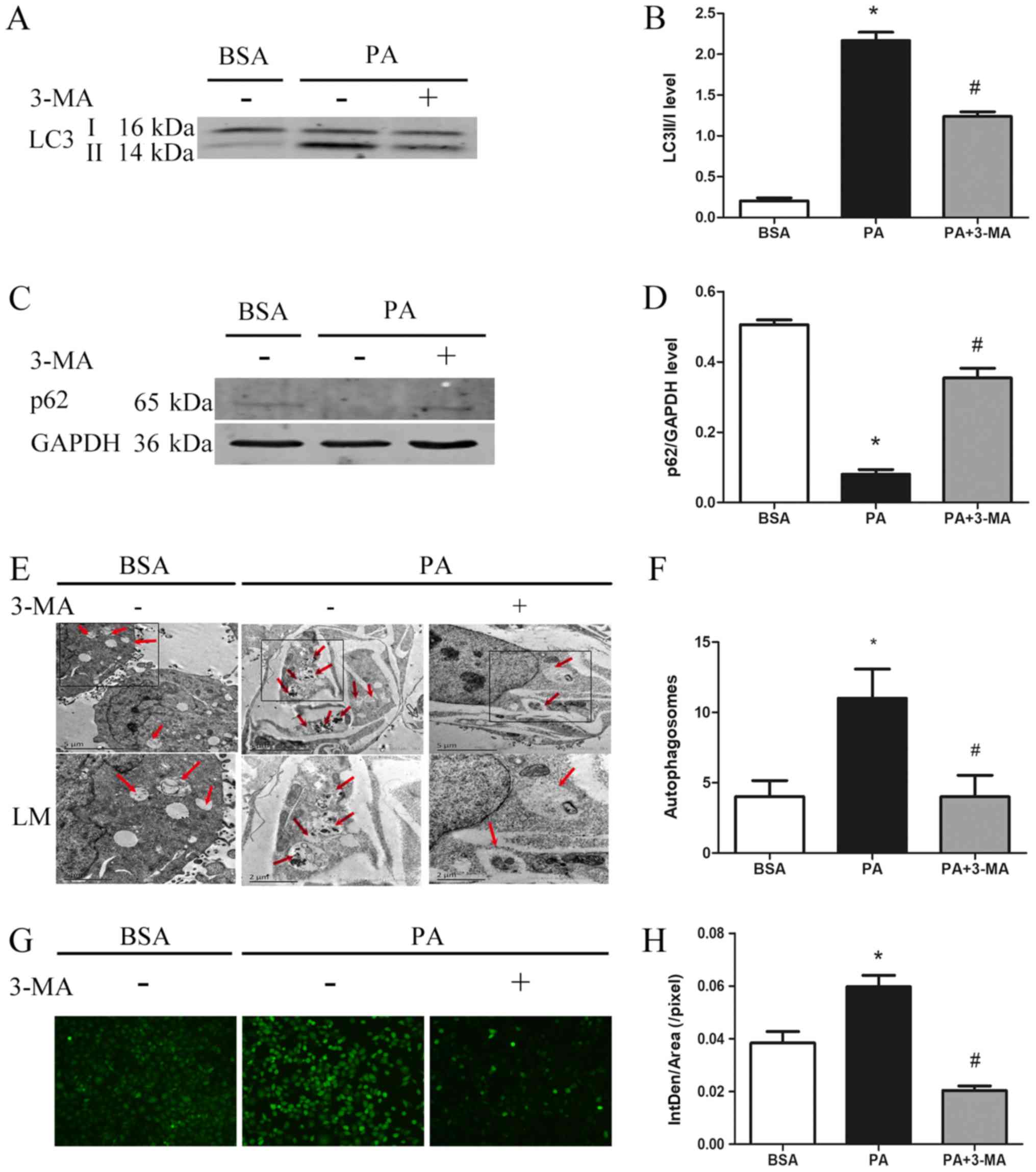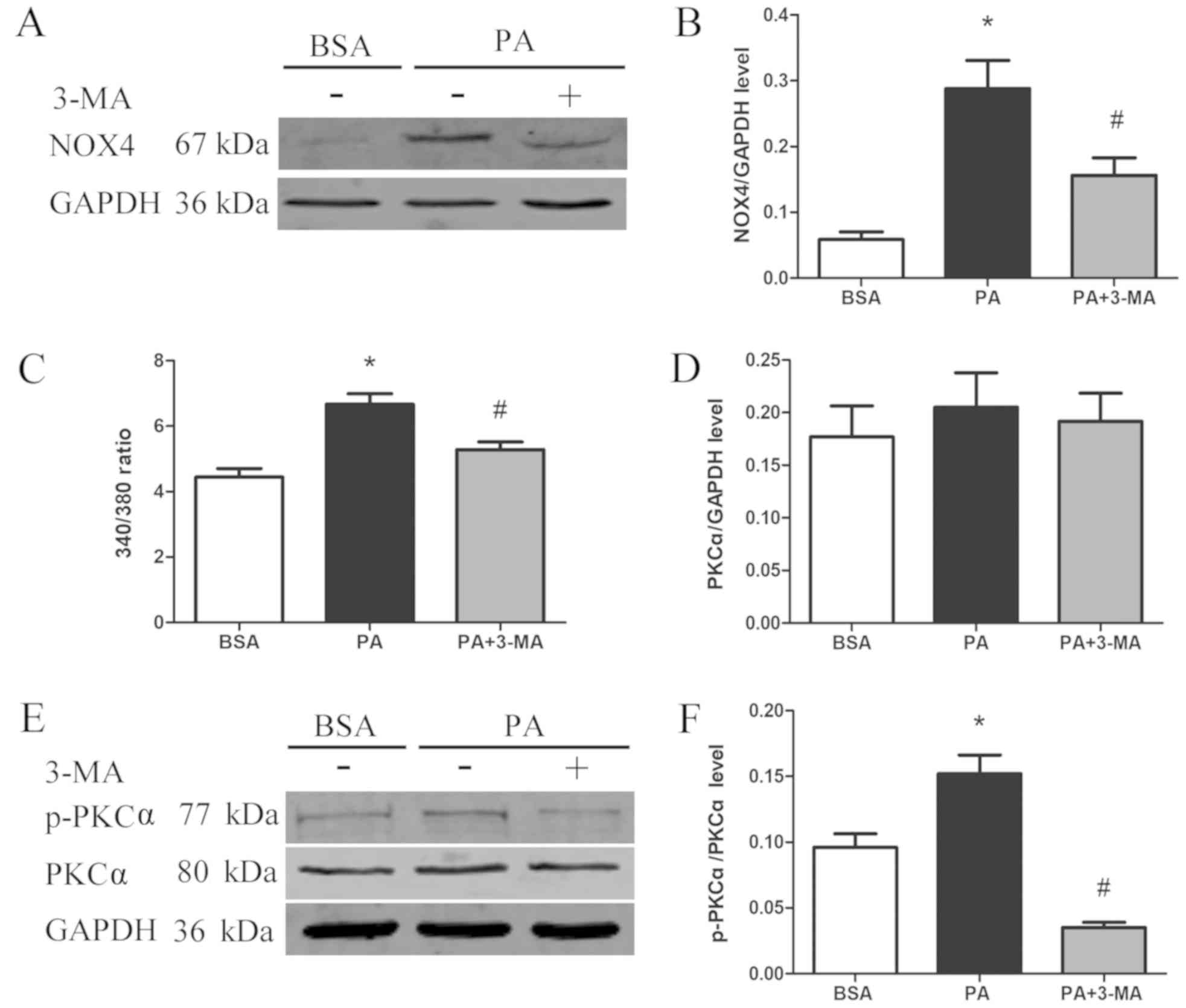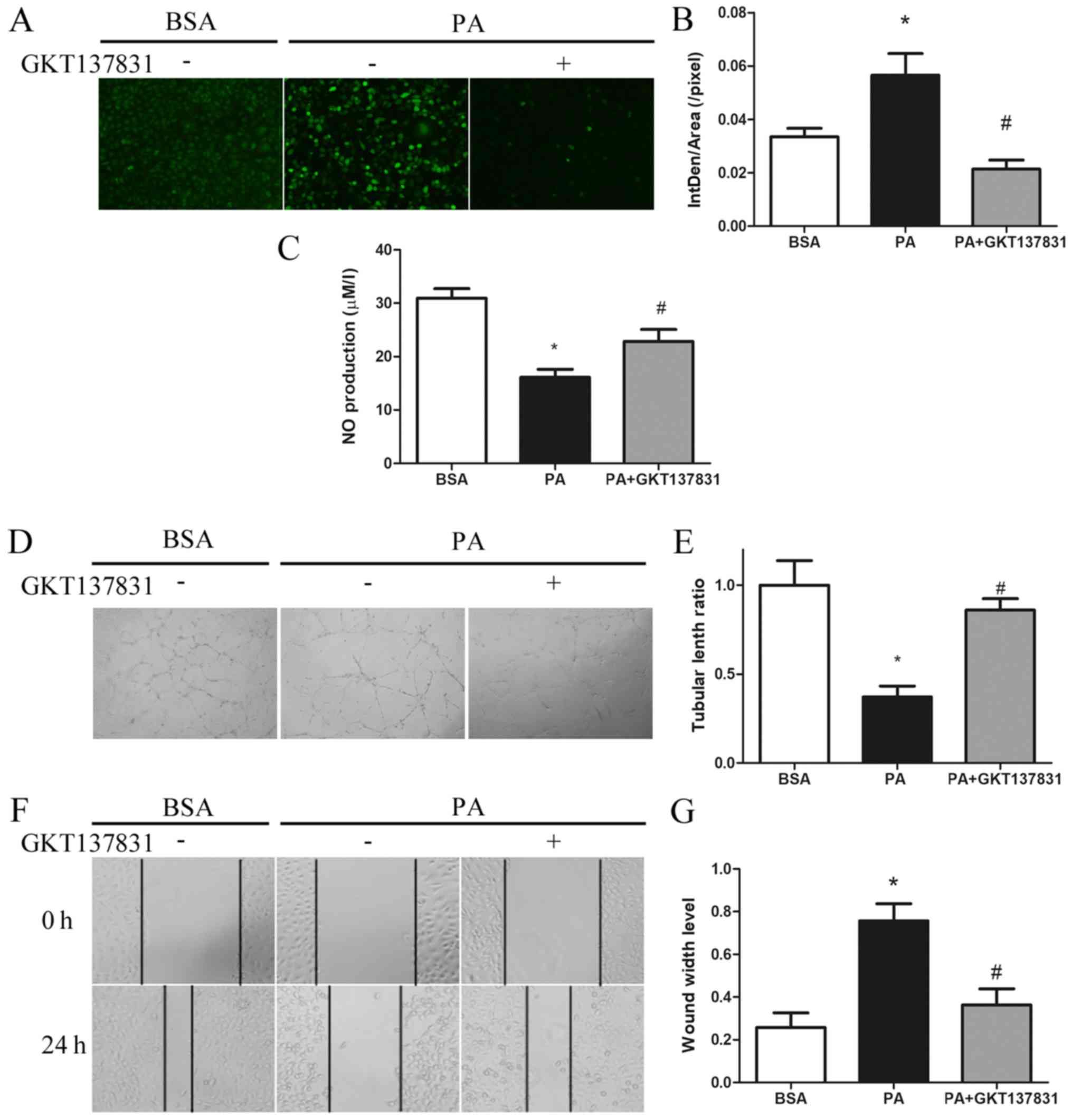|
1
|
Fruchart JC, Sacks FM, Hermans MP, Assmann
G, Brown WV, Ceska R, Chapman MJ, Dodson PM, Fioretto P, Ginsberg
HN, et al: The residual risk reduction initiative: A call to action
to reduce residual vascular risk in dyslipidaemic patient. Diab
Vasc Dis Res. 5:319–335. 2008. View Article : Google Scholar : PubMed/NCBI
|
|
2
|
Miller M, Stone NJ, Ballantyne C, Bittner
V, Criqui MH, Ginsberg HN, Goldberg AC, Howard WJ, Jacobson MS,
Kris-Etherton PM, et al: Triglycerides and cardiovascular disease:
A scientific statement from the American Heart Association.
Circulation. 123:2292–2333. 2011. View Article : Google Scholar : PubMed/NCBI
|
|
3
|
Borradaile NM and Schaffer JE:
Lipotoxicity in the heart. Curr Hypertens Rep. 7:412–417. 2005.
View Article : Google Scholar : PubMed/NCBI
|
|
4
|
Brookheart RT, Michel CI and Schaffer JE:
As a matter of fat. Cell Metab. 10:9–12. 2009. View Article : Google Scholar : PubMed/NCBI
|
|
5
|
Titov VN: The excess of palmitic fatty
acid in food as main cause of lipoidosis of insulin-dependent
cells: Skeletal myocytes, cardio-myocytes, periportal hepatocytes,
kupffer macrophages and b-cells of pancreas. Klin Lab Diagn.
61:68–77. 2016.(In Russian). PubMed/NCBI
|
|
6
|
Sena CM, Pereira AM and Seiça R:
Endothelial dysfunction-a major mediator of diabetic vascular
disease. Biochim Biophys Acta. 1832:2216–2231. 2013. View Article : Google Scholar : PubMed/NCBI
|
|
7
|
Khan MJ, Rizwan Alam M, Waldeck-Weiermair
M, Karsten F, Groschner L, Riederer M, Hallström S, Rockenfeller P,
Konya V, Heinemann A, et al: Inhibition of autophagy rescues
palmitic acid-induced necroptosis of endothelial cells. J Biol
Chem. 287:21110–21120. 2012. View Article : Google Scholar : PubMed/NCBI
|
|
8
|
Gough DR and Cotter TG: Hydrogen peroxide:
A Jekyll and Hyde signalling molecule. Cell Death Dis. 2:e2132011.
View Article : Google Scholar : PubMed/NCBI
|
|
9
|
Schieber M and Chandel NS: ROS function in
redox signaling and oxidative stress. Curr Biol. 24:R453–R462.
2014. View Article : Google Scholar : PubMed/NCBI
|
|
10
|
Mariño G, Niso-Santano M, Baehrecke EH and
Kroemer G: Self-consumption: The interplay of autophagy and
apoptosis. Nat Rev Mol Cell Biol. 15:81–94. 2014. View Article : Google Scholar : PubMed/NCBI
|
|
11
|
Huang S, Van Aken O, Schwarzländer M, Belt
K and Millar AH: The roles of mitochondrial reactive oxygen species
in cellular signaling and stress response in plants. Plant Physiol.
171:1551–1559. 2016. View Article : Google Scholar : PubMed/NCBI
|
|
12
|
Arnhold J and Flemmig J: Human
myeloperoxidase in innate and acquired immunity. Arch Biochem
Biophys. 500:92–106. 2010. View Article : Google Scholar : PubMed/NCBI
|
|
13
|
Fransen M, Nordgren M, Wang B and
Apanasets O: Role of peroxisomes in ROS/RNS-metabolism:
Implications for human disease. Biochim Biophys Acta.
1822:1363–1373. 2012. View Article : Google Scholar : PubMed/NCBI
|
|
14
|
Scherz-Shouval R and Elazar Z: Regulation
of autophagy by ROS: Physiology and pathology. Trends Biochem Sci.
36:30–38. 2011. View Article : Google Scholar : PubMed/NCBI
|
|
15
|
Almaguel FG, Liu JW, Pacheco FJ, De Leon
D, Casiano CA and De Leon M: Lipotoxicity mediated cell dysfunction
and death involves lysosomal membrane permeabilization and
cathepsin L activity. Brain Res. 1318:133–143. 2010. View Article : Google Scholar : PubMed/NCBI
|
|
16
|
Gong J, Muñoz AR, Chan D, Ghosh R and
Kumar AP: STAT3 down regulates LC3 to inhibit autophagy and
pancreatic cancer cell growth. Oncotarget. 5:2529–2541. 2014.
View Article : Google Scholar : PubMed/NCBI
|
|
17
|
Klionsky DJ, Abdalla FC, Abeliovich H,
Abraham RT, Acevedo-Arozena A, Adeli K, Agholme L, Agnello M,
Agostinis P, Aguirre-Ghiso JA, et al: Guidelines for the use and
interpretation of assays for monitoring autophagy. Autophagy.
8:445–544. 2012. View Article : Google Scholar : PubMed/NCBI
|
|
18
|
Evangelista AM, Thompson MD, Bolotina VM,
Tong X and Cohen RA: Nox4- and Nox2-dependent oxidant production is
required for VEGF-induced SERCA cysteine-674 S-glutathiolation and
endothelial cell migration. Free Radic Biol Med. 53:2327–2334.
2012. View Article : Google Scholar : PubMed/NCBI
|
|
19
|
Song P and Zou MH: Redox regulation of
endothelial cell fate. Cell Mol Life Sci. 71:3219–3239. 2014.
View Article : Google Scholar : PubMed/NCBI
|
|
20
|
Fandy TE, Jiemjit A, Thakar M, Rhoden P,
Suarez L and Gore SD: Decitabine induces delayed reactive oxygen
species (ROS) accumulation in leukemia cells and induces the
expression of ROS generating enzymes. Clin Cancer Res.
20:1249–1258. 2014. View Article : Google Scholar : PubMed/NCBI
|
|
21
|
Borradaile NM, Han X, Harp JD, Gale SE,
Ory DS and Schaffer JE: Disruption of endoplasmic reticulum
structure and integrity in lipotoxic cell death. J Lipid Res.
47:2726–2737. 2006. View Article : Google Scholar : PubMed/NCBI
|
|
22
|
Xu MJ, Song P, Shirwany N, Liang B, Xing
J, Viollet B, Wang X, Zhu Y and Zou MH: Impaired expression of
uncoupling protein 2 causes defective postischemic angiogenesis in
mice deficient in AMP-activated protein kinase alpha subunits.
Arterioscler Thromb Vasc Biol. 31:1757–1765. 2011. View Article : Google Scholar : PubMed/NCBI
|
|
23
|
Jansen F, Yang X, Hoelscher M, Cattelan A,
Schmitz T, Proebsting S, Wenzel D, Vosen S, Franklin BS,
Fleischmann BK, et al: Endothelial microparticle-mediated transfer
of MicroRNA-126 promotes vascular endothelial cell repair via
SPRED1 and is abrogated in glucose-damaged endothelial
microparticles. Circulation. 128:2026–2038. 2013. View Article : Google Scholar : PubMed/NCBI
|
|
24
|
Yan Y and Finkel T: Autophagy as a
regulator of cardiovascular redox homeostasis. Free Radic Biol Med.
109:108–113. 2017. View Article : Google Scholar : PubMed/NCBI
|
|
25
|
Li L, Tan J, Miao Y, Lei P and Zhang Q:
ROS and autophagy: Interactions and molecular regulatory
mechanisms. Cell Mol Neurobiol. 35:615–621. 2015. View Article : Google Scholar : PubMed/NCBI
|
|
26
|
Filomeni G, De Zio D and Cecconi F:
Oxidative stress and autophagy: The clash between damage and
metabolic needs. Cell Death Differ. 22:377–388. 2015. View Article : Google Scholar : PubMed/NCBI
|
|
27
|
Papandreou I, Lim AL, Laderoute K and
Denko NC: Hypoxia signals autophagy in tumor cells via AMPK
activity, independent of HIF-1, BNIP3, and BNIP3L. Cell Death
Differ. 15:1572–1581. 2008. View Article : Google Scholar : PubMed/NCBI
|
|
28
|
Tang D, Kang R, Cheh CW, Livesey KM, Liang
X, Schapiro NE, Benschop R, Sparvero LJ, Amoscato AA, Tracey KJ, et
al: HMGB1 release and redox regulates autophagy and apoptosis in
cancer cells. Oncogene. 29:52992010. View Article : Google Scholar : PubMed/NCBI
|
|
29
|
Tang D, Kang R, Livesey KM, Cheh CW,
Farkas A, Loughran P, Hoppe G, Bianchi ME, Tracey KJ, Zeh HJ III
and Lotze MT: Endogenous HMGB1 regulates autophagy. J Cell Biol.
190:881–892. 2010. View Article : Google Scholar : PubMed/NCBI
|
|
30
|
Guzy RD, Hoyos B, Robin E, Chen H, Liu L,
Mansfield KD, Simon MC, Hammerling U and Schumacker PT:
Mitochondrial complex III is required for hypoxia-induced ROS
production and cellular oxygen sensing. Cell Metab. 1:401–408.
2005. View Article : Google Scholar : PubMed/NCBI
|
|
31
|
Bellot G, Garcia-Medina R, Gounon P,
Chiche J, Roux D, Pouysségur J and Mazure NM: Hypoxia-induced
autophagy is mediated through hypoxia-inducible factor induction of
BNIP3 and BNIP3L via their BH3 domains. Mol Cell Biol. 6:2570–2581.
2009. View Article : Google Scholar
|
|
32
|
Lob H, Rosenkranz AC, Breitenbach T,
Berkels R, Drummond G and Roesen R: Antioxidant and nitric
oxide-sparing actions of dihydropyridines and ACE inhibitors differ
in human endothelial cells. Pharmacology. 76:8–18. 2006. View Article : Google Scholar : PubMed/NCBI
|
|
33
|
Zhang C, Lan T, Hou J, Li J, Fang R, Yang
Z, Zhang M, Liu J and Liu B: NOX4 promotes non-small cell lung
cancer cell proliferation and metastasis through positive feedback
regulation of PI3K/Akt signaling. Oncotarget. 5:4392–4405. 2014.
View Article : Google Scholar : PubMed/NCBI
|


















